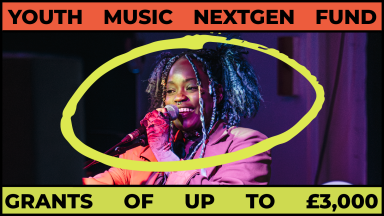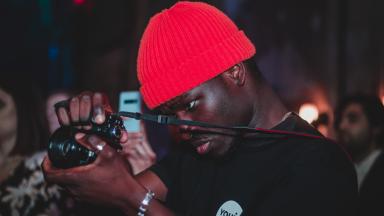
Written by NextGen Contributing Writer Bethan McConnell
As an artist, you are always going to be looking for ways to promote yourself and your work. One of the best ways to get yourself heard is to gain press coverage. Press coverage can range from online blog reviews, interviews, print content and even being included in a magazine’s playlists. With so many different musicians and publications out there, how do you get noticed?
I have worked for my own independent music publication since 2017, and as an editor, these are the factors that we look for when artists send over their press kits. Other editors may look for slightly different pieces of information, but this guide is a good way of learning the basics of doing your own PR as an independent artist.
There are a range of amazing PR companies that artists can use, who organise your press releases, targets and publication coverage, but they do come at a cost. This guide is for artists who perhaps cannot afford to pay a PR company, or for artists who are just starting out in the industry.
1. Do you have your press kit ready?
When you reach out to a journalist or publication, you need to be able to tell them exactly who you are, and what sort of music you create. An EPK, also known as an electronic press kit, includes all of the essential information needed for someone to review your music. There are a range of aspects that make up an EPK, including:
-
Artist name: Who are you?
-
Type of release: Are you looking for coverage for a single release, album release or tour?
-
Date of release: When is your single or album release? When are you touring? When are tickets on sale?
-
A private SoundCloud streaming link: How can a journalist review your music if they don’t have a chance to listen to it?
-
Artist biography: A biography is a good way to introduce yourself to a journalist, including your influences and FFO.
-
Photos: Do you have clear press photos?
-
Social media links: Where can a writer follow your music?
-
Quotes: Is there an interesting backstory to your music? Are you excited to go on tour?
-
Previous press and testimonials: Have you received previous coverage from other publications? Do you have a 5 star review on a music website?
-
Contact and info: Are you looking to be interviewed? How can journalists contact you for more information?
2. Do you have good press photos?
When a publication is looking to review or interview an artist, they will need clear press photos to go with the review. Do your research on the publications you are looking to be covered by, and see what kinds of photos they use alongside reviews and interviews.
If a publication regularly uses landscape images on their website, it is not likely that they can use portrait images. Photos used online and in print need to be of a high quality, usually taken on a DSLR or mirrorless camera. If photos are not high quality, it means that the published article can look unprofessional and grainy.
Having clear and interesting press photos can go a long way, as it can be the first thing a journalist sees when they open your press email. You don't need to go out of your way and spend thousands of pounds on a photoshoot that you can’t afford, but just make sure that the images you include are appropriate for online or print publishing.
3. Do you have realistic press targets?
Independent, small artists are generally more successful when pitching to smaller music publications, based on the fact that larger publications get a lot more EPKs in their inbox.
If a small pop music blog gets 100 EPKs in their inbox in a week, they are far more likely to check your music out for review than a bigger publication that gets tens of thousands every week. It would be lovely if your music was covered by publications like The Guardian and Rolling Stone, but if this is your first single release and you’re not fairly known, hitting bigger press targets can be difficult.
It is also important to look at the kinds of coverage music publications provide. If you are wanting to be interviewed for your EP release, you need to check whether the publication you’re pitching to actually publishes features and interviews. Some music publications don’t offer previews or playlist features, so doing your research is a good way to ensure that you are successful in your press pitching.
There are many guides online that can assist you planning your press targets and timelines, as well as examples of successful EPKs. If you don’t hear back from your target publications, it can’t hurt to follow up with them. More popular blogs and websites are more likely to receive more press emails, so it can take time for journalists to go through all of their submissions. Doing your own music PR can take time and practise, and any mistakes you make along the way will only help to improve your future press releases.
You may also like...
NextGen Fund
Grants of up to £3,000 for young creatives looking to bring their ideas to life.
NextGen Resources
From musicians and producers, to managers and events promoters, find out where to get information and support to help you progress.
'Make your own opportunities' - L C Y’S advice for emerging artists
We caught up with DJ, producer and record label owner L C Y who shares their advice for emerging creatives starting out in the music industries today.



